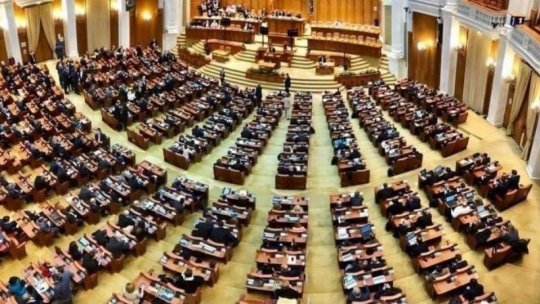Economic Press Review
The articles are from the Ziarul Financiar, Curierul Naţional and the Adevărul.

Articol de Dinu Dragomirescu, 01 Noiembrie 2010, 20:30
"The stakes of Ordinance 50 become the stakes of the IMF agreement’ is the title of a Ziarul Financiar article, which states that the ordinance ‘that establishes more transparent conditions for consumer credit and current loans, has become a reason for conflict between the government and IMF officials, who require the modification or even abrogation of the new laws in order to continue the financing agreement."
Ziarul Financiar quotes former Finance Minister Sebastian Vladescu: ‘I believe that saying banks will suffer a major loss is an exaggeration, the ordinance has been operational for several months and I haven't seen anybody leave because of it’. Vlădescu also asserts that banks have also profited from the financially uneducated clients and from a certain naivety.
The Curierul Naţional published an article entitled: ‘IMF negociations have reached a deadlock because of Ordinance 50’. Also: "The IMF, European Commission and World Bank mission is adamant to overdue debts, for which it asked for big payments as a condition to the next tranche."
The Curierul National headline: "The state must meet the deadline!’ ‘Undertakers ask for the Directive against overdue debts’ that "reached an alarming number, even though the IMF has asked the Government to pay its debts."Under these conditions, arrears are bigger than 1.2 billion euro and the overdue on some is even past twelve months. These debts are a problem for companies, which, in order to avoid bankruptcy; have to apply for bank loans that have a very unsatisfying interest.
"The accumulation of overdue debts is one of the impediments against economy recovery because they influence company liquidities’ the daily Ziarul Financiar also writes."
"Even though the government agreed in front of the IMF to decrease overdue debts to the private sector, with each review of the agreement, they asked for a new derogation, after failing to meet the quarterly targets it had committed to; and the IMF was indulgent, since it agreed to them every time."
In an article, the Ziarul Financiar states: "Even though the government paid two billion lei in debts for the supply companies from the health industry, new arrears started to appear, long overdue bills, but which were unregistered and thus, not taken into account. This happened not only to the health sector, but also transportation, and infrastructure projects, especially in the local authorities sector."
The daily Adevărul writes an article about the democrat-liberals’ intention to take up other parties’ place in a series of institutions, under parliamentary control, by claiming leadership chairs."
The National Securities Commission is among the aforementioned institutions, "the legislative authority regarding securities’, but also the Romanian Court of Accounts, ‘an institution that supervises public spending fairness."
Ziarul Financiar has an article on the motorways of Romania. "Romania currently has only 321.3 kilometres of motorway, built over more than 40 years. (...) Romania is the worst example of Eastern and Central European motorway quality, only 57% of them are paved, that is, considering that the Czech Republic has no unpaved motorway mile, and, in Bulgaria, the EU’s poorest state, 99% of the motorway is paved."
Translated by: Ciocănel Tudor Alexandru and Elena Daniela Radu
MTTLC students, Bucharest University.













